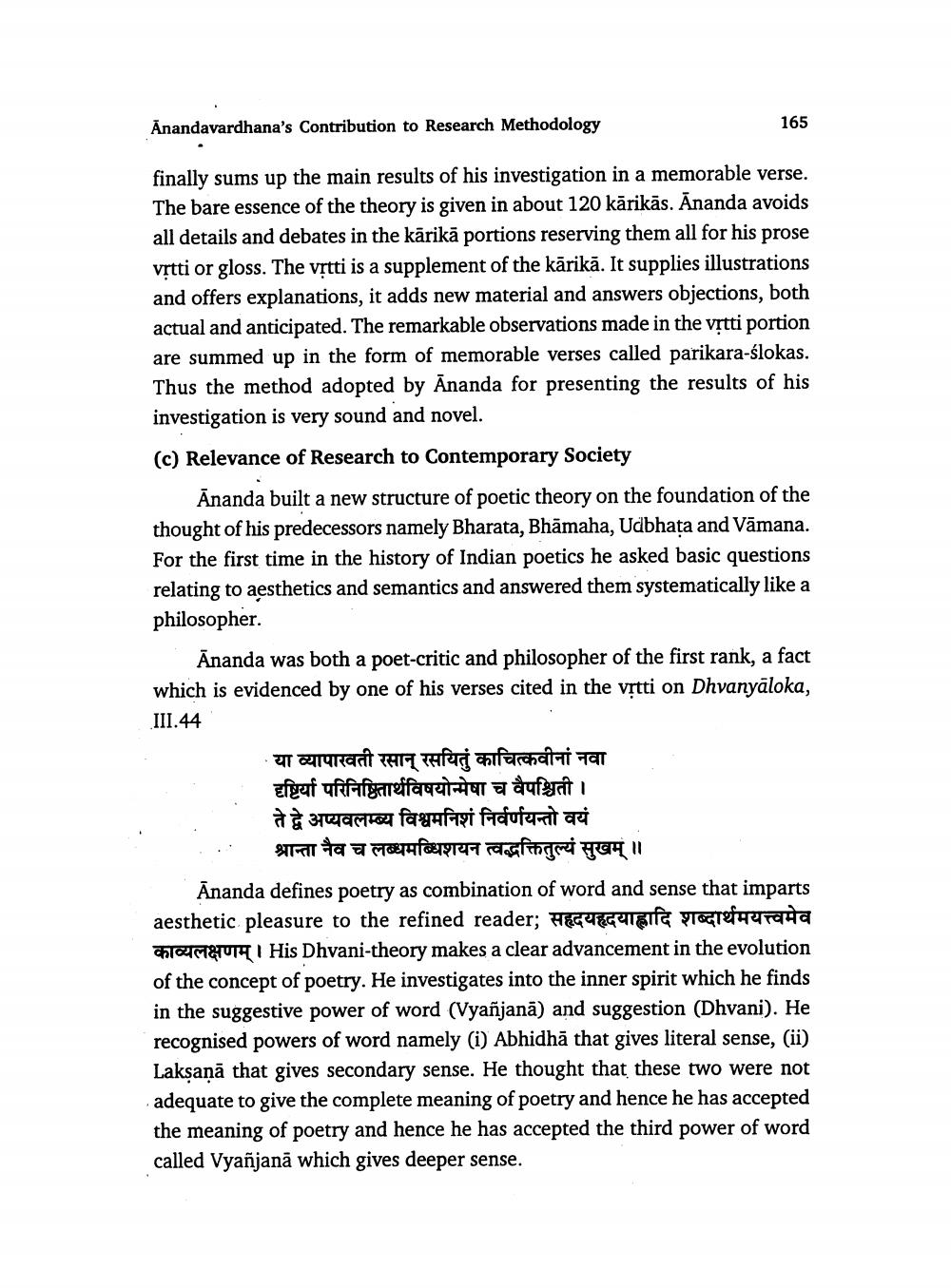________________
Anandavardhana's Contribution to Research Methodology
165
finally sums up the main results of his investigation in a memorable verse. The bare essence of the theory is given in about 120 kārikās. Ānanda avoids all details and debates in the kārikā portions reserving them all for his prose vrtti or gloss. The vrtti is a supplement of the kārikā. It supplies illustrations and offers explanations, it adds new material and answers objections, both actual and anticipated. The remarkable observations made in the vrtti portion are summed up in the form of memorable verses called parikara-ślokas. Thus the method adopted by Ananda for presenting the results of his investigation is very sound and novel.
(c) Relevance of Research to Contemporary Society
Ananda built a new structure of poetic theory on the foundation of the thought of his predecessors namely Bharata, Bhāmaha, Udbhata and Vāmana. For the first time in the history of Indian poetics he asked basic questions relating to aesthetics and semantics and answered them systematically like a philosopher.
Ananda was both a poet-critic and philosopher of the first rank, a fact which is evidenced by one of his verses cited in the vrtti on Dhvanyāloka, III.44
या व्यापारवती रसान् रसयितुं काचित्कवीनां नवा दृष्टिर्या परिनिष्ठितार्थविषयोन्मेषा च वैपश्चिती। ते द्वे अप्यवलम्ब्य विश्वमनिशं निर्वर्णयन्तो वयं श्रान्ता नैव च लब्धमब्धिशयन त्वद्भक्तितुल्यं सुखम् ॥
Ananda defines poetry as combination of word and sense that imparts aesthetic pleasure to the refined reader; सहृदयहृदयाहादि शब्दार्थमयत्त्वमेव chrum TUTH I His Dhvani-theory makes a clear advancement in the evolution of the concept of poetry. He investigates into the inner spirit which he finds in the suggestive power of word (Vyañjanā) and suggestion (Dhvani). He recognised powers of word namely (i) Abhidhā that gives literal sense, (ii) Lakşaņā that gives secondary sense. He thought that these two were not adequate to give the complete meaning of poetry and hence he has accepted the meaning of poetry and hence he has accepted the third power of word called Vyañjanā which gives deeper sense.




